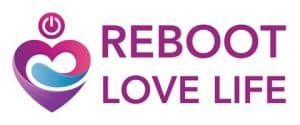Dating a chronic alcoholic is not everyone’s cup of tea – and that’s okay.
You should break up with an alcoholic if they have begun to impact your own well-being, finances, and life goals. However, you must aim to take it gently and think well before you decide when and how to break up with an alcoholic. Taking a calm and strategic approach over an impulsive one is ideal.
Whether you are wondering if you should or should not break, how to initiate the conversation of a breakup, or are scared of its repercussions – keep reading to find more insights and suggestions into ending a relationship with an alcoholic.
Is it Okay to Break Up with an Alcoholic?
While having fun with some alcohol is common, dealing with chronic alcoholism can severely destroy relationships. You should break up with an alcoholic once their behavior starts penetrating your relationship, causing fights, chaos and poor physical and mental health for both you and your partner.
Here are five tell-tale signs that you should end things off with an alcoholic lover:
1. Abuse
Any form of emotional, verbal, financial or physical abuse, especially for an extended period of time, can leave behind trauma and pain. The longer you stay within abuse, the harder it becomes to heal from it.
While it is okay for you to want to be there for someone in need of help, you should never do so by stepping into abuse yourself. In case of any active form of abuse, you should walk away and seek help.

2. High Responsibility
Taking full responsibility for someone, especially someone whose functioning is often impaired, can be taxing. Romantic partnerships are often about sharing the burden and growing together.
If you feel like you are being burdened with more responsibility than you can handle, and it is taking a heavy toll on your career, health, and personal relationships, it is time to back off.
This is especially true if you find your partner draining your savings and you find yourself incapable of handling their expenses with alcohol abuse.
Financial responsibility can stress you out to the point of no return.
3. Infidelity or Disloyalty
Irrespective of alcoholism, your partner should always respect the mutually-decided terms of your relationship.
For monogamous relationships, if you find them sleeping around and often blaming it on the alcohol, that is a huge red flag.
Similarly, if your partner frequently lies to you, steals from you, or is disloyal and dishonest in any form, you should be wary of them as they do not have your best interest in mind.
Walking away to a safer and more reliable space in your life is best.
4. Impact Upon Children
Being surrounded by a chronic alcoholic can gravely impact children and teens. It can drive them towards unhealthy or abusive practices themselves as they grow up.
If you feel like your child, whether you had them with your current partner or an ex, is being affected by or has to witness the effects of alcoholism, it is better to walk out of that relationship.
Take your children to a healthier and safer place. Children largely rely on adults for their protection and well-being, and should be your first priority.
5. Empty Promises
Your last string to your relationship with an alcoholic is their desire to change and improve their condition.
There isn’t much hope if you have already conveyed the trouble their alcohol abuse brings to you and your relationship, its impact on your future, and all they give back to you are empty promises.
Saying that they will go to rehab, or give it up, without showing up on a single day or trying at all does not do much. You shouldn’t turn a blind eye to their lack of willingness.
Give them a couple of chances. If they are still not sticking to what they’ve promised, they will most likely not change.
How To Break Up With An Alcoholic?
1. Think Clearly
The first step to ending a relationship with an alcohol abuser or addict is to think with a clear mind. A relationship with an alcoholic can take many forms, and there’s no universal rule.
To be able to assess and come up with the best method, you have to be clear-headed and come from a calm place. Aim to think logically and strategically, and do not let emotions get the best of you.
Sometimes, you might have to get away from your partner to get into a mental space of clarity.
Take some time off your partner to assess the situation, possible actions, and your emotions before you take the next step.

2. Discuss it With Loved Ones
Taking the perspective of those outside the relationship can help you take an unbiased approach. It will help you avoid making impulsive or reckless decisions that can affect both you and your partner.
At this stage, make sure you discuss your vulnerabilities with people you trust, can rely on and that you think want the best for you.
This can especially become a tricky situation for those that are isolated. However, even if you haven’t been in contact, do not hesitate to reach out to close friends and family from the past.
Note: If your partner is abusive and does not permit you to contact anyone, try and find ways to reach out to social services or NGOs discreetly through the internet.
3. Establish Your Stakes
Whether you are yet to decide on breaking up or are looking at the best way to take it forward, you should always first establish what’s at stake for you- what you stand to lose.
There will always be pros and cons to each method and decision. You must be well aware and prepared for what you need to let go of.
Establishing your stakes can also lower the amount of pain you would have to go through as you would have foreseen it.
It’s also important that you don’t just back off because you get scared of what you might lose. Clarity should not give rise to fear but instead help you craft the safest route for you.
4. Ensure Their Safety
An alcoholic is often prone to all kinds of illogical behavior. While their recklessness should not stop you from choosing what’s best for you, you should try to ensure their safety to whatever extent you can.
Reaching out to their friends and family may be of great help.
Discuss your plans and express your concern to sensible people who would still be there for your partner when they’re alone while understanding your position.
It may be hard to find such people, but knowing that there is someone to take care of your partner may ease your guilt or fear of breaking up.
5. Get Them at a Good Time
It is no surprise that you should try breaking up with your partner when they’re sober.
You might have to wait a little for the perfect time but make sure you can avoid reactive outbursts or at least bring them to their senses.
In short, your communication should reach them clearly, in their sane mind, and when they will remember it without a doubt.
If you are scared of physical abuse, you might want to do it out in public or in a space with people around.
6. Communicate Clearly
Unlike regular breakups, breaking up with an alcoholic could be trickier because of their clouded minds. In some cases, they might even be delusional.
Communicating your feelings and the desire to end things may be easier if you have a clear-headed partner, regardless of alcoholism.
When breaking up, avoid beating around the bush and tell your partner directly that it’s over and the cause behind it. If you do not trust them to change, let them know.
It may be challenging, but it is also crucial for you to be honest and direct. Do try to be gentle but firm.
7. Steer Clear
Once you’ve made it clear that you don’t want to take it forward, you should try and stay out of contact, at least for some time. Avoid checking up on your partner or informing your whereabouts to them.
Social media can be especially tricky. If you do not want to cut them out completely, refrain from indulging in it or checking up their profile instead.
All in all, after proper closure, give them and yourself time to heal. Being stuck in the past will only build up false narratives or keep old wounds alive.

8. Forgive
Dating a chronic alcoholic is bound to leave an array of emotions behind that can be difficult to let go of. Sometimes, it can also leave a trail of trauma behind.
You have to ensure proper aftercare for yourself post-breakup. It all begins with forgiveness.
If you find yourself constantly blaming yourself for their actions or holding a painful grudge against them for ruining your life, it can wreak havoc on your future relationships and current mental state.
Forgiveness is only about acceptance. It does not mean that you have to let the other person back in or jump to the next relationship immediately. Simply accept these actions as flaws.
9. Allow Yourself to Heal
Depending on the kind of relationship you had, you may or may not suffer from several mental struggles yourself.
How long it takes for you to heal is purely subjective, and it is best that you do not treat it like a goal that has to be attained.
Do what feels good to you, take care of your mind and body, and most importantly, keep yourself busy.
This is a great opportunity for you to explore hobbies and places you could not before and slowly build a different view of the world.
The process will be harder at first, but with persistence, it gets easier and better over time.
10. Be Open to Help
It is okay for you to ask for help or take therapy. It will not only make your healing journey easier but also faster. However, it is also important to be open to helping your partner.
Remember that you should only be there for them when you yourself have healed or have the mental strength to bear through it. This does not imply that you have to face abuse or their tantrums either.
Set clear boundaries, but if they desire to become a better person or reach out to rehab, try to leave some room for support or medical emergencies.
How To Heal From A Break Up With An Alcoholic?
Breaking up with an alcoholic can have drastically different repercussions than a conventional, healthy breakup. It comes with plenty of baggage that can take some time to take off your shoulders.
The kind of healing you need, or how long you take to get over the breakup, will depend both on your individual being and the relationship you had with this person.
However, some of the most common consequences of breaking up after dating a chronic alcoholic are:
- Blaming yourself for their mistakes or for being unable to keep up with them.
- Having severe trust issues and trouble believing others and their promises.
- Constant fear and anxiety of physical abuse, angry responses, or being left alone and behind.
Whatever you may feel, things do get better, and you can learn to step out of it. Here are three key things you must do for your well-being after breaking up with an alcoholic:
1. Seek a Therapist
The ideal and safest way to heal and sort your issues is to see a good therapist.
If you already see a therapist, be open and honest about how you feel, stick through with therapy, and act out on what your therapist tells you to do. However, not everyone can afford medical aid.
In the coming age, you can find several apps that offer discounts, NGOs, and NPOs, that try to make seeking help accessible for you.
Working actively with a mental health specialist may be the fastest way to heal.
2. Confide in Friends and Family
While not everyone can afford therapy, most people can find people to confide in. You do not necessarily have to take their advice.
Someone who did not go through what you did may not always have the best solutions for you, even when they have your best in mind.
Simply aim to spend time with your close ones, be vulnerable and open, and allow your emotions to flow.
They may sometimes say things you do not necessarily like or relate to, but let yourself know that they only want you to get better and help you; they just don’t have the expertise.

3. Work Towards Being Independent
Focusing on self-development, your career, and building your own identity are some of the top ways to get over the past.
Practice letting go and working towards a new version of yourself with self-respect, self-reliance, and an independent approach.
Finding your path may be difficult at first, and it may look different from others. Journaling, planning, taking inspiration, and setting goals can slowly kickstart the process.
Do keep in mind that being independent does not mean that you should do everything alone. Ensure that you are not too hard on yourself, and seek help when you feel like you need it.
It is also best to steer clear from dating for some time and only jump in when you feel that you are ready to trust another as your partner.
Conclusion
Having dealt with alcohol or substance-abusing partners can be incredibly hard.
Both – staying in a relationship and breaking up with them can leave several issues and scars that may feel like they can never change. But everything can.
You do not have to stick with abuse or take full responsibility for someone when you find yourself incapable of it. Always choose yourself, and grow out of it.
